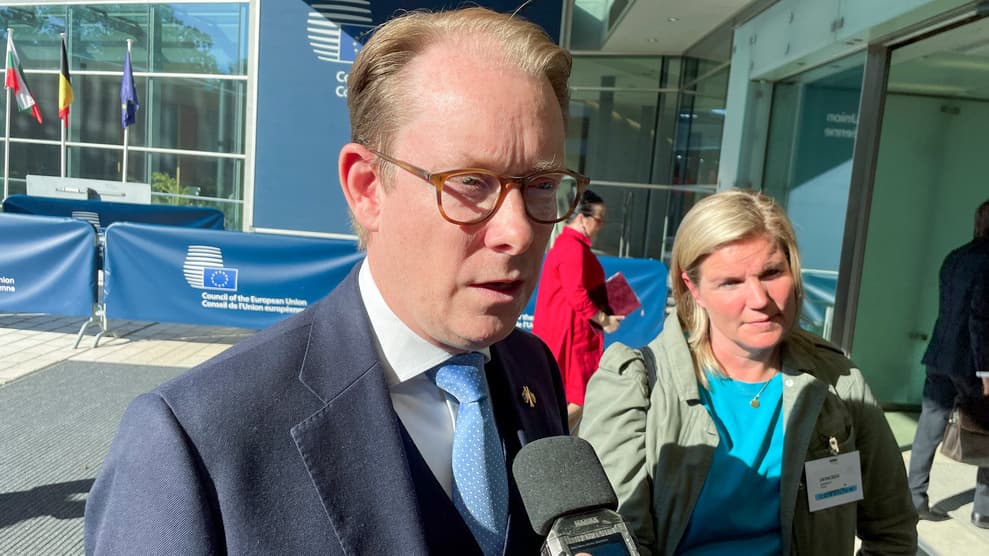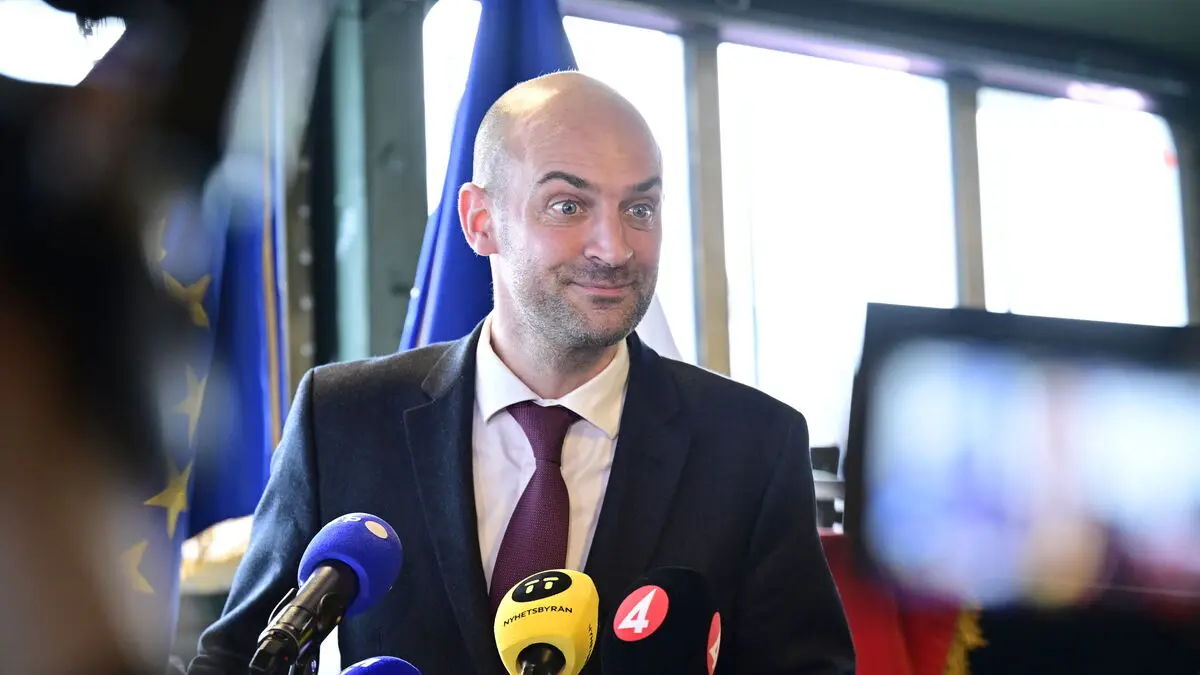The EU countries are sending fresh billions to Ukraine shortly and have secured their 14th sanctions package against Russia.
However, what happens next is more uncertain as Hungary, critical of sanctions, takes over in the EU.
The latest sanctions package targets, among other things, the "shadow fleet" – the often questionable vessels that Russia has used to circumvent previous sanctions, primarily on oil trade. 27 specific vessels are listed, with a ban on entering ports and receiving service in the EU.
The hope is that the sanctions will serve as a warning to the countries where the vessels are registered.
It's not states that are necessarily EU states, but other countries. And we need to talk to them to try to get to the bottom of this problem, says Foreign Minister Tobias Billström (The Moderate Party) on site in Luxembourg.
Money for Ukraine
In parallel, the EU countries have now agreed that money from the yield on frozen Russian assets – initially €1.4 billion – will soon be able to be used for Ukraine's benefit.
This will constitute an important part of the long-term support to Ukraine. The money can be used for both military support and reconstruction, notes Billström.
According to him, Hungary has clearly promised not to block the decision – even if the country continues to stop other EU decisions on more money for military support to Ukraine.
Hungary's resistance and scepticism about sanctions have also contributed to the four-month delay between package number 13 and 14. This raises questions about how things will go forward, considering that Hungary is the next chair of the EU Council of Ministers, from next week.
Neutral?
Hungary's Prime Minister Viktor Orbán accuses the EU's conservatives, social democrats, and liberals of creating a "pro-war coalition in the European Parliament".
Tobias Billström says he still counts on a neutral and restrained leadership from Hungary's side.
There is no room for any deviations, says the Foreign Minister.
The EU's latest sanctions package due to Russia's war in Ukraine is the 14th since the outbreak of war in February 2022.
Among other things, the import of Russian helium and Russian liquefied natural gas (LNG) to ports not connected to the EU's gas network is stopped. At the same time, 116 new power holders, organisations, and companies – including Russia's largest shipping company, Sovkomflot – are placed on the list of those whose assets in the EU will be frozen and will not be granted visas.
EU companies are also required to ensure that their subsidiaries in third countries do not contribute to circumventing sanctions. Parties, foundations, community organisations, think tanks, and media companies are also prohibited from receiving funding from the Russian state.
The package also includes the possibility for EU companies to seek compensation due to Russian confiscation.






